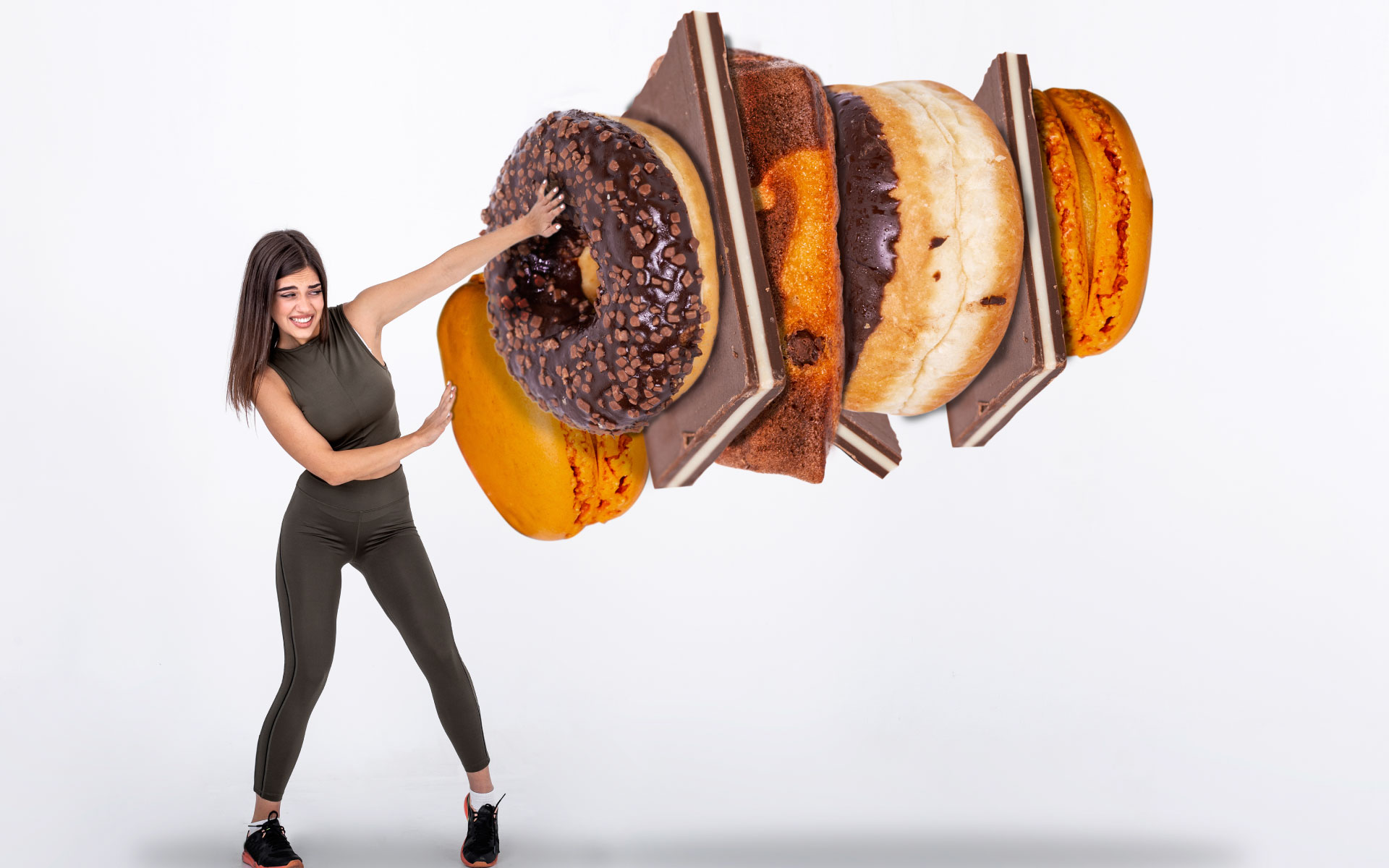If you´re craving stodgy carbs such as doughy bread or a big bowl of pasta it may be a sign of low tryptophan levels needed for serotonin production – our “happy” brain chemical. It also plays a crucial role in our sleep and wake cycles as well as digestion and lack of it can lead to low mood and comfort food.
Try to minimise stress as too much means that the production of serotonin from tryptophan is pushed down another pathway to make kynurenic acid instead which is associated with increased risk of depression.
If you crave cake and doughnuts it may be a sign of low dopamine. The combination of fat and sugars can have a unique effect upon brain chemicals. When certain fats are added to sugar, dopamine may be released which is associated with pleasure and reward.
Your food cravings are also dictated by the health of your gut microbiome, the “gut bacteria food cravings connection.” A healthy gut equals less sugar cravings, less food cravings and more balanced blood sugar overall—meaning more energy, a faster metabolism, mental clarity, and food freedom.
A lack of sleep may make you want to reach for sugary snacks or caffeine pick me ups, as a lack of sleep increases the levels of the hormone called ghrelin which triggers appetite.
Unfortunately the worst thing to do is succumb to quick energy fixes which give a short lived boost of energy followed by a sharp dip leaving energy levels even lower than they were before.
A chromium deficiency can also affect blood sugar levels. Add cinnamon to your sugar free granola or chai teas.
To help manage your cravings:
- Eat enough tryptophan: turkey, eggs, walnuts
- With omega 3s: oily fish, flaxseeds.
- Exercise – trigger dopamine pathways
- Daylight – triggers serotonin (especially morning daylight)
- Get enough sleep
https://www.ted.com/talks/nicole_avena_how_sugar_affects_the_brain
How do you tell whether you have a problem with sugar?
There is survey known as The Yale Food Addiction Scale which asks you a set of questions – the answers to which give a good indication of whether you have a problem with sugar.
Think of the questions in the context of eating sugar and sugary foods.
Answer yes or no to the following seven statements:
- I eat certain foods even if I am no longer hungry.
- I feel sluggish or fatigued from overeating.
- My behaviour with respect to food causes me distress.
- I have had physical withdrawal symptoms, such as agitation and anxiety, when I cut down on certain foods (not including coffee and tea).
- I have spent time dealing with negative feelings from overeating, instead of spending time on family, friends, work or recreation.
- I am consuming the same types or amounts of food, despite significant emotional or physical problems related to my eating.
- Over time, I have found that I need to eat more and more to get the feeling I want, such as reduced negative emotions or increased pleasure.
If you answered ‘yes’ (and this happens more than three times a week) to the first five, and simply ‘yes’ to the other two, you need to take a long look at your eating habits, as it is very likely you do have a problem with sugar.
